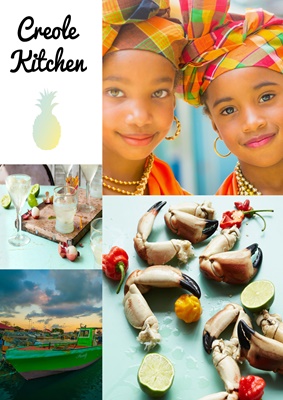
at blue land crabs. They live in small holes in the ground near the
mid valleys. They are usually caught in a very rustic trap. They
chillies, herbs, spices, or fruits like mangoes. This will fatten them
they're not easy to find outside the Caribbean, so in my crab
ab or crab claws.
are even crab hunts when the hunting season is open. The small
oupe holds an annual crab festival, and has a crab museum that
r; it was once snubbed because of the lack of meat in its shells. In
nturies the Church imposed Lent on the slaves, and meat, even
hat time, the slaves relied mainly on crabs as a source of protein.
ogether in the black shack alleys to down the excess crab they
b was still viewed as slave food; the former slaves, when they
d chicken for the Easter Sunday celebrations. Crab became
the year Easter Monday became a public holiday.
y different ways, the most widespread being the matété
outou in Martinique) is a Carib word, originally used for a large
f reeds and palm leaves. The dish that takes its name is similar to
ut is made with crabs only.
very popular throughout the Lesser Antilles. You could survive
ing meat - except for pork at Christmas - with seafood including
My favourite is conch: it's not really available in the UK but if you
orks well in a chicken stew similar to the octopus chicken
and very fussy. I had a hard time adapting to cold sea fish in my
h I now really enjoy seasonal local fish here, nothing replaces the
e ports of Guadeloupe and Martinique, the fish often still alive
hole fish: poached, stewed, grilled or fried. Many food-lovers
rest of the body, and the head is where most of the health-